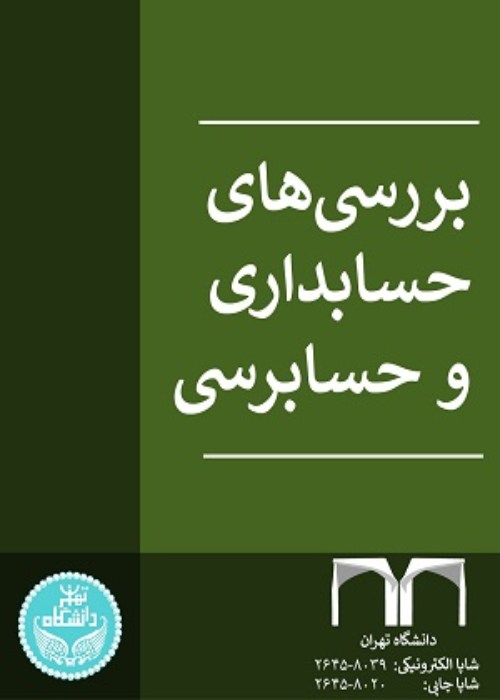Analyzing Behavioral Consequences of Occupational Burnout among Accounting and Finance Faculty Members in Iran: A Study on Faculty Attrition
The main purpose of this study is to investigate the behavioral consequences of job burnout in Iranian accounting and finance faculties with a focus on faculty turnover.
In terms of its purpose, this study falls under the category of applied research, and in terms of its methodology, it is descriptive survey research. To assess occupational burnout, the research employed the Maslach Questionnaire (Fogarty et al., 2016). Turnover intentions were measured using the Kalbers and Fogarty (1995) questionnaire, job satisfaction with the Brayfield and Rothe questionnaire (1951), and organizational commitment was gauged using Meyer and Allen's (1997-1991) questionnaire. Data for the research was obtained through 234 completed questionnaires from faculty members specializing in accounting and financial management in 2022. The analysis was conducted using the structural equation method, and the data was processed with PLS (Partial Least Squares) software.
The obtained results showed that job satisfaction is influenced by the depersonalization component. Job burnout, encompassing emotional burnout, reduces personal accomplishment, and depersonalization, and is inversely related to emotional commitment to the organization while exhibiting a positive correlation with the persistence of organizational commitment. The results indicated that burnout components do harm the job performance of accounting and finance faculty members.Furthermore, the findings showed that turnover intentions do not emerge as a consequence of occupational burnout. Instead, job satisfaction emerges as a crucial determinant of turnover intentions among accounting and finance faculty members. The components of emotional commitment and continuity of organizational commitment also have a negative relationship with Turnover Intentions. Finally, emotional commitment to the organization is the reason for increasing job satisfaction.
The result of this study shows that occupational burnout in the field of higher education can be an effective factor in reducing job satisfaction and job performance. While the results revealed that burnout in the three emotional dimensions, reduced personal accomplishment, and depersonalization, does not significantly impact the turnover intentions of accounting and finance faculty members, it remains an influential factor on performance and job satisfaction. Additionally, the components of burnout also affect organizational commitment, including emotional commitment and continuity. It seems necessary for the Iranian legislative and relevant authorities in higher education, including the Ministry of Science, Research and Technology and the Islamic Azad University, to use appropriate mechanisms to manage the factors that aggravate job burnout to avoid negative consequences such as job dissatisfaction, leaving the academic profession and avoid bearing replacement costs.
Contribution:
In the empirical literature, the issue of job burnout and its consequences have not been considered by researchers, and few empirical studies addressed the concept in the auditing profession. Considering the effective contribution of higher education in the preparation and promotion of accounting, finance, and related research fields, neglecting occupational burnout can cause irreparable losses.
- حق عضویت دریافتی صرف حمایت از نشریات عضو و نگهداری، تکمیل و توسعه مگیران میشود.
- پرداخت حق اشتراک و دانلود مقالات اجازه بازنشر آن در سایر رسانههای چاپی و دیجیتال را به کاربر نمیدهد.



